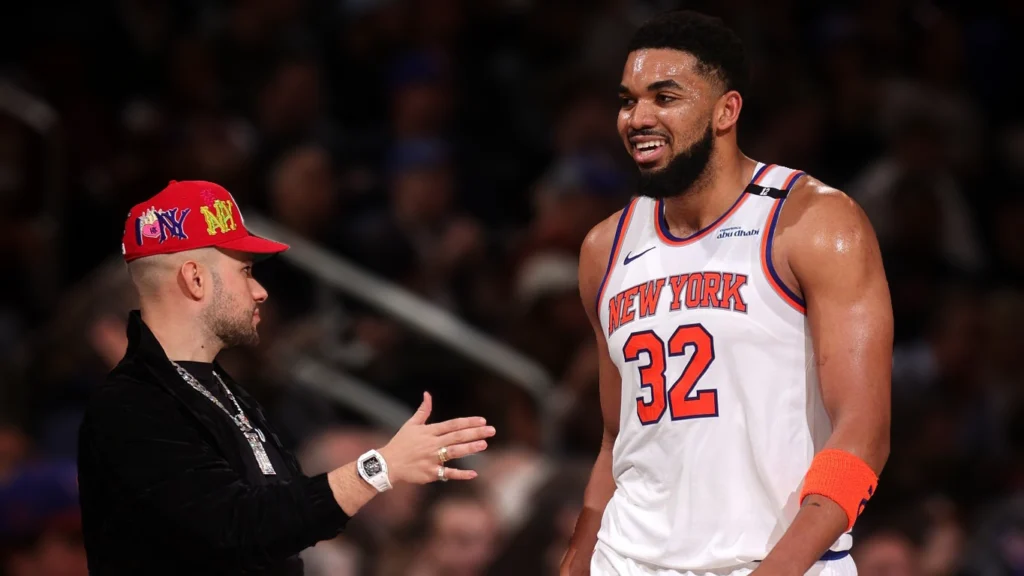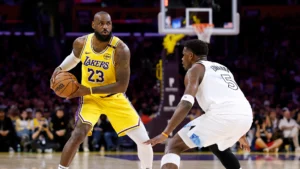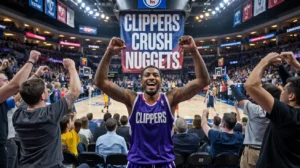
New York – In a pivotal Game 2 loss to the Indiana Pacers in the Eastern Conference Finals, the New York Knicks found themselves grappling not just with a 114-109 defeat, but also with a growing controversy surrounding the decision to bench Karl-Anthony Towns during much of the fourth quarter. While Towns had found a scoring rhythm after a scoreless first period, finishing the game with 20 points, his extended absence during the critical stretch of the game has left fans and analysts alike questioning the Knicks’ strategy and direction.
Head coach Tom Thibodeau offered a brief rationale postgame, stating that he was “searching for a win” and opted to ride a smaller lineup with Mitchell Robinson as the lone big man. Thibodeau’s defensive mindset isn’t new, but the timing of the decision and the stakes involved have drawn scrutiny. Robinson, who finished with six points, nine rebounds, and three blocks, provided solid rim protection and a +6 rating in 29 minutes. In contrast, the Knicks were outscored by 20 points during Towns’ 28 minutes on the court, a stat that may have influenced the coaching decision, even if it meant limiting a major scoring option.
However, the choice to sideline a star like Towns in crunch time isn’t one that sits easily with fans or media. Acquired mid-season to bolster New York’s interior scoring and rebounding, Towns is expected to be a focal point, especially in high-leverage moments. His offensive skill set, including floor spacing and post play, is unique among Knicks bigs, and his benching has raised deeper questions about team chemistry, tactical cohesion, and Thibodeau’s rotations under pressure.
Towns himself did not publicly express frustration but acknowledged the need for better starts and more consistent execution. “We keep digging ourselves into holes early, and we’ve got to fix that,” he said. His measured response contrasts with growing fan concerns that the Knicks are failing to maximize their assets during a critical championship window.
Teammates have tried to keep the focus on improvement. Josh Hart emphasized the importance of Towns staying aggressive offensively and remaining locked in on defense. “We need KAT to be KAT,” Hart said. “He’s a matchup problem. But we also need to stay solid on the other end.”
From a tactical standpoint, Thibodeau may have been reacting to a Pacers lineup that went small and fast, with Tyrese Haliburton pushing tempo and drawing bigs out to the perimeter. Still, it’s debatable whether benching a player of Towns’ caliber helped or hindered the Knicks. In high-stakes playoff basketball, rhythm and confidence are crucial, and interruptions in a star player’s flow can have lasting consequences over a series.
The bigger picture for the Knicks is now urgent. Down 0-2 and heading to Indiana, they are on the brink of a collapse that would undo months of progress and investment. The Towns benching could become a flashpoint if the Knicks don’t quickly regain their footing. Thibodeau’s job security won’t immediately be in question, but postseason coaching decisions tend to define legacies, especially in a high-pressure market like New York.
For Towns, the challenge will be to respond with professionalism and production. For the Knicks, Game 3 must be about cohesion, urgency, and smart deployment of their stars. With the Pacers riding momentum and Haliburton in All-Star form, there is no room for hesitation or internal confusion.
Whether Thibodeau’s move was a strategic gamble or a misjudgment, the outcome has sparked debate and magnified the spotlight on every decision moving forward. The Knicks still have the talent to claw back into the series, but they’ll need to make every possession — and every player — count. And that starts with making sure their top talents are trusted in the biggest moments.

